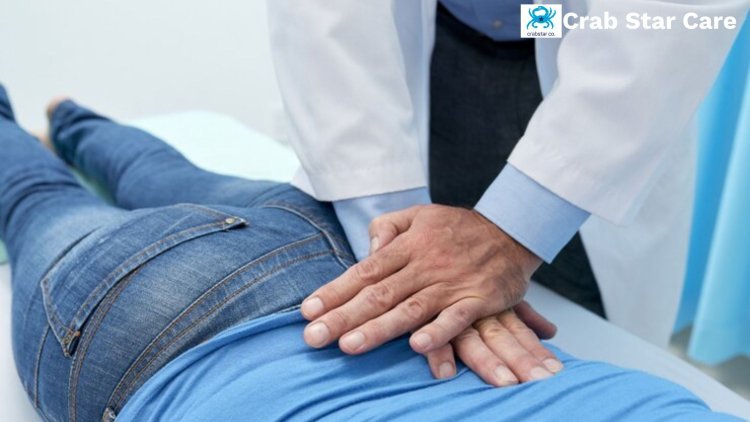What is Post Operative Care After Hip Replacement Surgery?

Undergoing hip replacement surgery can be a transformative experience, allowing individuals to regain their mobility and improve their quality of life. It’s a significant operation that requires careful preparation and, most importantly, diligent hip replacement surgery post-operative care.
Hip replacement is often the solution for severe arthritis or hip damage, providing relief from pain and stiffness. However, the success of the procedure doesn't end in the operating room; it extends well into the recovery period. What should you focus on after the surgery to ensure a smooth recovery?
Why Post-Operative Care Matters?
Hip replacement surgery involves replacing a damaged hip joint with an artificial one. This surgery, while effective, requires substantial healing and rehabilitation time. The post-operative period is critical because it determines how well the joint heals and integrates with the body. Proper post-operative hip surgery care minimizes the risks of complications like infections, dislocations, and blood clots, and it helps patients return to their everyday activities faster.
Think of post-operative care as the bridge between surgery and full recovery. It encompasses pain management, physical therapy, wound care, and lifestyle adjustments. Each step in this process is designed to help you regain strength, flexibility, and mobility while preventing setbacks.
7 Ways How Crab Star Care Approach Post-Operative Care
The following are seven essential elements of post-operative care, based on the comprehensive approach employed by Crab Star Care professionals. They aim to guide you through a safe recovery process, addressing all aspects of your well-being:
-
Follow Your Surgeon’s Instructions
Surgeons provide specific post-operative instructions for a reason. These guidelines are tailored to each patient's needs and are crucial for a successful recovery. They typically cover restrictions on movement, wound care, and follow-up appointments. Ignoring these guidelines could lead to complications, slowing your recovery. It’s crucial to follow these instructions closely. Crab Star Care professionals reinforce the importance of these guidelines and ensure you understand and adhere to them.
-
Manage Pain Effectively
Pain management is a key aspect of post-operative care. After surgery, you will likely experience pain and discomfort as your body heals. Effective pain management helps you stay comfortable and reduces stress, allowing you to focus on recovery. Crab Star Care professionals work with you for post hip surgery care to create a pain management plan, which may include prescribed medications, ice therapy, and relaxation techniques. They monitor your pain levels and adjust treatment as needed, ensuring you can move and exercise without excessive discomfort.
-
Engage in Physical Therapy
Physical therapy is critical for restoring strength and mobility after hip replacement surgery. It helps you regain muscle strength, improve joint flexibility, and maintain range of motion. Crab Star Care provides experienced physical therapists who create a personalized exercise program for you. These exercises are designed to gradually build your strength and confidence, promoting a faster recovery. Physical therapists also teach you proper techniques for walking and using mobility aids to avoid straining your new hip joint.
-
Practice Wound Care and Infection Prevention
Your surgical wound requires careful attention to prevent infection and ensure proper healing. Infection is a common concern after surgery and can lead to severe complications if not addressed promptly. Crab Star Care professionals guide you through the process of wound care, including how to clean the area and change dressings. They also teach you what signs of infection to look for, such as redness, swelling, or unusual discharge, and ensure you understand the importance of maintaining a clean environment to minimize infection risks.
-
Use Mobility Aids Appropriately
Mobility aids like crutches, canes, or walkers are often needed during the initial recovery period. These tools help you move around safely without putting too much pressure on your new hip joint. However, improper use can lead to falls or additional stress on the joint. Crab Star Care professionals demonstrate the correct use of these aids, providing hands-on training and ensuring you feel confident in your ability to move around. They also help you transition to using aids less as you gain strength and stability.
-
Watch for Signs of Complications
Even with proper care, complications can occur after hip replacement surgery. Early detection and prompt action are essential to preventing more severe issues. Crab Star Care professionals are trained to identify early signs of complications such as deep vein thrombosis (DVT), joint dislocation, or severe swelling. By monitoring your condition closely, they can take quick action to address any emerging issues, reducing the risk of long-term problems.
-
Focus on a Healthy Diet and Hydration
Your diet plays a significant role in your recovery. Eating a balanced diet rich in nutrients helps your body heal and recover faster. Proper hydration is also crucial, as it supports circulation and helps your body flush out toxins. Crab Star Care professionals can assist you in planning a nutritious diet, focusing on foods high in vitamins, minerals, and protein to support healing. They also stress the importance of drinking enough water to maintain overall health during recovery.
Wrapping Up
Post-operative care after hip replacement surgery is the key to a successful recovery. By following these seven essential steps, you can ensure a smooth healing process and minimize the risks of complications.
Crab Star Care professionals provide comprehensive support throughout this journey, from pain management and physical therapy to wound care and diet planning. With their guidance, you can navigate the challenges of recovery and get back to enjoying a pain-free, active lifestyle. Proper post-operative care isn't just about healing—it's about regaining your independence and quality of life.
What's Your Reaction?











![Wireless Connectivity Software Market Size, Share | Statistics [2032]](https://handyclassified.com/uploads/images/202404/image_100x75_661f3be896033.jpg)



